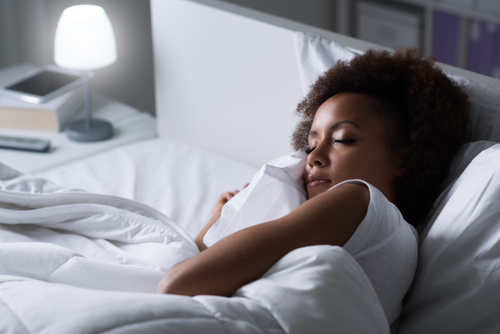Read the latest and greatest from our team
of incredible specialists.

Beach House Recovery Center » Blog » Get Some Rest to Prevent Relapse
Chronic stress increases your risk of relapse into drug use. And fatigue (physical or mental) increases your risk of becoming chronically stressed. So getting adequate rest is one important element of relapse prevention.
That’s not always as easy as going to bed on schedule: if your brain is used to high-anxiety mode and especially if you’ve recently detoxed from addiction, your mind and body may fight rest even when you’re physically lying down. Ask your therapist for help making a learn-to-relax plan that fits you. Here are some general tips to get started:

Ideally, these should be the same on work days and non-work days, to keep your body clock on a uniform (i.e., low-stress) routine. Whether or not you can bring yourself to completely ignore the sleep-late-on-weekends norm, consider these ideas for keeping sleep hours consistent:
This usually means:
In your last 1–2 hours before bed, try not to:
Instead, have a regular routine of physically and mentally relaxing activities. Try some of the following ideas (but not all of them at once: having too much to finish is stressful in itself).
By the time you get into bed, you should be relaxed enough to fall asleep quickly and sleep soundly.
Your daytime routine affects your sleep, and collapsing into bed exhausted can be as bad as lying awake worrying. So if you’ve been living in strive-and-achieve mode, start taking a real break every hour or two. Stand up, stretch, walk over to a window with a view (or step outside) and take 5–10 minutes for a short meditation exercise or for just being mindful of your body and surroundings. Your energy levels and creative thinking—not to mention your relapse-prevention resilience—will thank you.
Besides brief hourly breaks, you need all the following to function at optimal level:
Don’t fall into the “I don’t have time for time off” trap. You get more done overall when you take time to refresh your energy and clear your head.
While exercising late in the evening makes it harder to fall asleep, exercising earlier in the day improves sleep by improving overall energy balance. Exercise may also reduce anxiety (and relapse temptations) by increasing your sense of control. Remember, either feeling like a victim or trying to control everything will put you at greater relapse risk. A vital part of recovery is knowing when to take control (activity) and when to release control (rest). Practice both regularly.
Whether you’re researching for yourself or a loved one, Beach House can help. We understand that this is a serious time in your life and that the treatment center you choose matters. We want you to feel comfortable and empowered to make the right decision for yourself, a friend, or a family member. This is why a counselor is waiting and available to answer your questions and help put your mind at ease regarding the next steps. Many of the staff at Beach House have walked in your shoes. If you feel you’re ready or want more information about how to help a loved one, we can help today. You can also learn why we are voted the #1 rehab for addiction treatment in Florida.
We accept most major insurance plans and can verify your benefits quickly and confidentially.
We’re committed to helping you access the care you need, our admissions counselors can guide you through your coverage options and available resources.





"*" indicates required fields